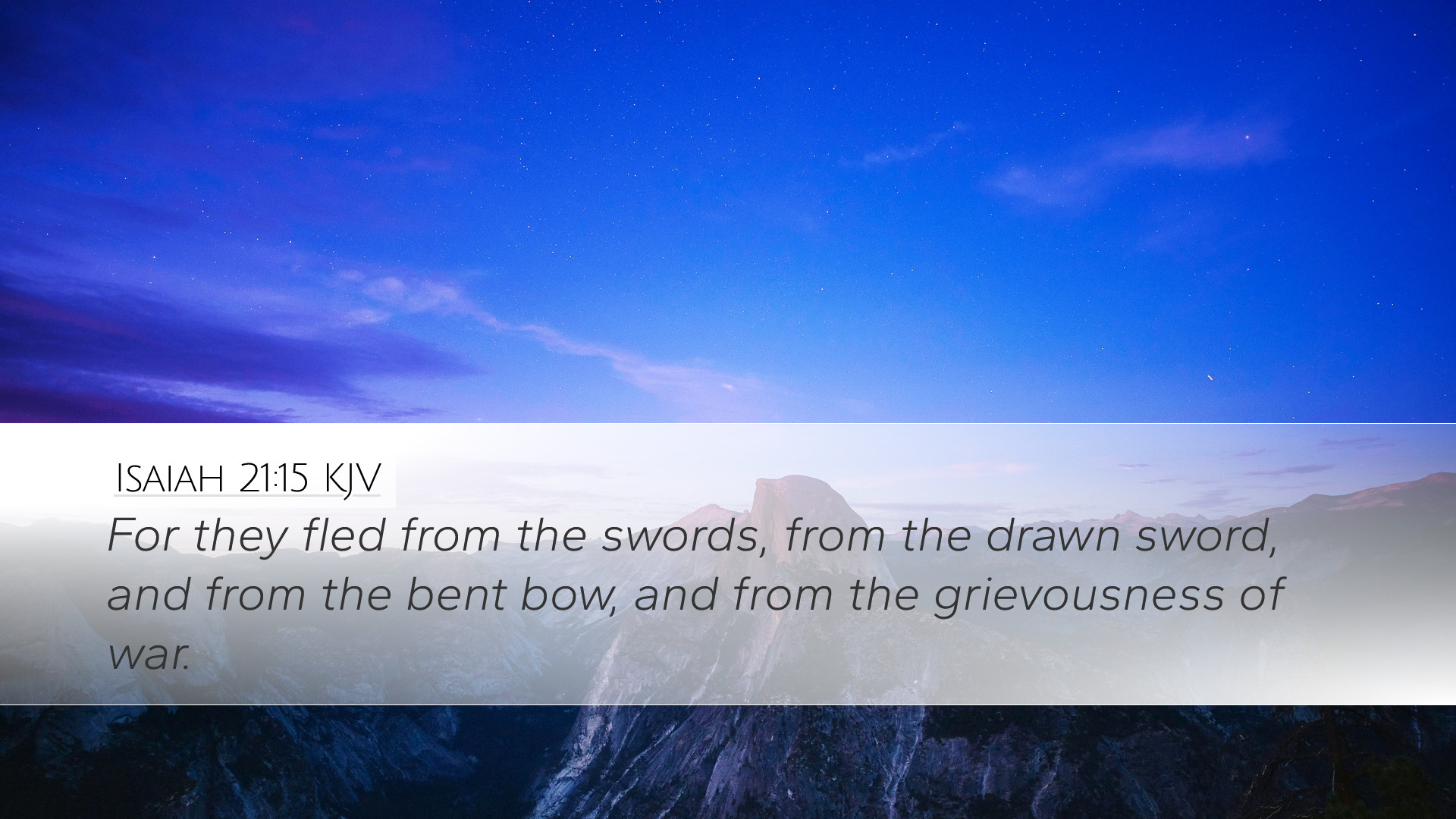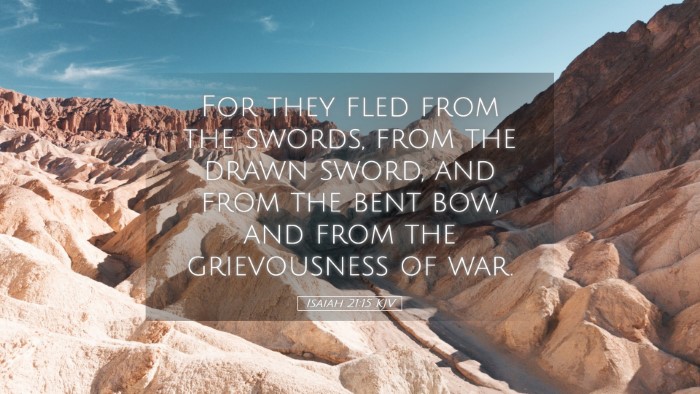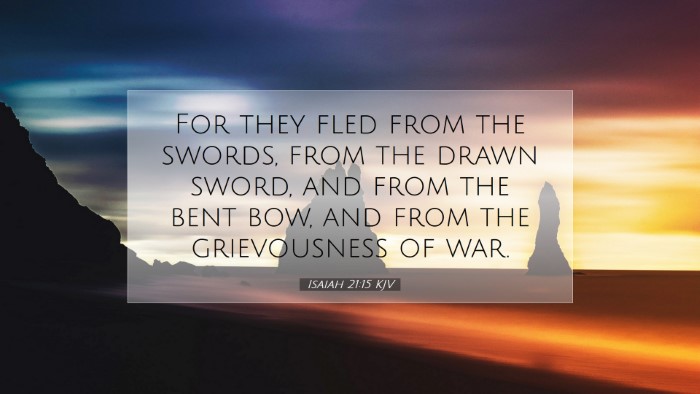Commentary on Isaiah 21:15
Verse Text: "For they fled from the swords, from the drawn sword, and from the bent bow, and from the grievousness of war."
Introduction
This passage from the prophetic book of Isaiah offers poignant insights into the human condition in the face of conflict and the dire consequences of war. Various public domain commentaries provide in-depth understanding, exploring historical context, theological implications, and practical applications for contemporary readers, including pastors, students, theologians, and Bible scholars.
Historical Context
Isaiah prophesied during a tumultuous time in Judah's history, when threats from neighboring nations loomed large. The passage in question refers specifically to the fear and desperation that accompany war. Matthew Henry emphasizes the urgency of the message, noting that the nations surrounding Judah were often embroiled in brutal conflicts.
- Warfare Realities: The historical context shows a people constantly facing the threat of invasion and destruction.
- Symbolism of Flight: The imagery of fleeing indicates not just a physical escape, but also a profound psychological state of fear and vulnerability.
Theological Insights
This verse can be understood through several theological lenses that underline God's sovereignty, the nature of warfare, and human frailty.
- Divine Sovereignty: Albert Barnes notes that while man may prepare for war, it is ultimately God who determines the outcome. The fleeing imagery highlights the impotence of human effort against divine judgment.
- Human Vulnerability: Adam Clarke points out that the panic experienced during warfare reflects broader existential fears. The bodies and souls of men are deeply affected by the terror of conflict.
- Consequences of Sin: Isaiah’s prophecy serves as a reminder that national and individual sin can lead to calamity. God’s judgment can manifest in the chaos of war.
Interpretive Analysis
Exploring the verse linguistically and literarily reveals further depth. The Hebrew terms in this passage resonate with themes of violence and desperation.
- Verb Usage: The use of verbs related to flight and war indicates an active response to an imminent threat, reinforcing the urgency of the situation.
- Imagery of Weapons: The "drawn sword" and "bent bow" symbolize forces that are prepared to strike, reflecting real and metaphorical aggressions in society.
Applications for Today
While rooted in historical events, the implications of Isaiah 21:15 reverberate into contemporary life, inviting reflection for various audiences.
- Pastoral Ministry: Pastors can draw upon this verse to counsel congregants facing personal and communal crises. The theme of fleeing from conflict resonates with those experiencing spiritual turbulence.
- Theological Reflection: Theologians should consider how themes of fear and divine sovereignty shape their understanding of God’s role in human affairs, especially in the context of global crises.
- Academic Inquiry: For students of theology and biblical studies, this passage presents a rich opportunity for exploring the interplay between historical context, literary devices, and theological themes.
Conclusion
Isaiah 21:15 serves as a sobering reminder of the realities of war and human suffering. As we reflect on the insights from eminent commentators, we are beckoned to understand our current circumstances through the lens of divine sovereignty, human fragility, and the hope found in God’s ultimate authority over chaos.


